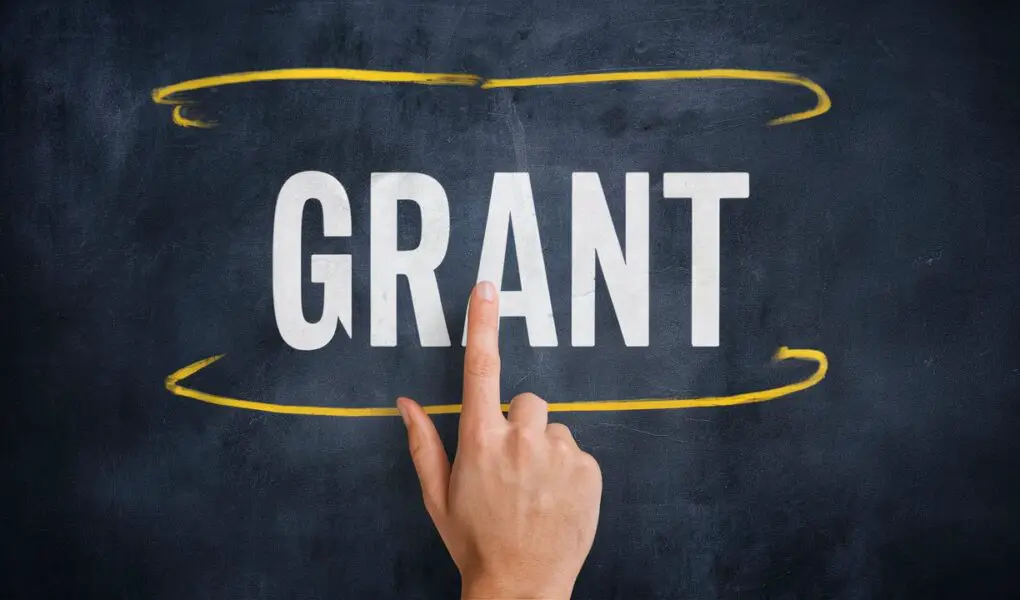The insights outlined in this post will help you overcome the common grant writing challenges and pitfalls.
Your journey may have ups and downs, but every proposal you create is an opportunity to learn, grow, and ultimately secure the funding necessary to achieve your goals.
Grant writing is an essential yet often complex process that requires clarity, strategy, and persistence. Many individuals and organizations have experienced setbacks and frustrations during the proposal creation process.
In this comprehensive post, we will discuss the common grant writing challenges and pitfalls and offer practical tips that can help enhance your success rate.
Grant Writing Landscape
Grant writing is not just about filling out forms and meeting deadlines. It is a process that requires a deep understanding of the funding landscape, a clear vision for your project, and the ability to articulate your goals in a persuasive manner.
According to recent data from the National Center for Charitable Statistics, nearly 80% of nonprofit organizations rely on grant funding to support their missions.
This statistic underlines the importance of developing effective grant writing skills, as many organizations are competing for limited funds.
The process begins with thorough research and planning. Many proposals falter at the very start because writers do not fully grasp the requirements or the funding body’s priorities.
Establishing a strong foundation can make a significant difference in how well your proposal is received.
Common Challenges in Grant Writing
Many writers face recurring obstacles when developing their proposals. These issues can range from structural problems in the proposal to deeper issues such as unclear objectives or unrealistic budgets.
Below are some of the most frequently encountered challenges:
1. Lack of Clear Objectives
One of the most common pitfalls in grant writing is the failure to define clear and achievable objectives. Proposals that do not communicate what the project intends to accomplish tend to fall short. Funders need to understand not only the end goal but also the steps planned to reach that goal. Setting precise objectives helps in creating a compelling narrative and a robust action plan.
2. Insufficient Research and Data
A proposal lacking in well-researched background information and solid data is often met with skepticism. Statistical evidence and relevant studies lend credibility to your request and help justify the need for the funding. Without concrete statistics, your proposal may come across as vague or unfounded.
3. Unconvincing Narrative and Lack of Storytelling
While it is critical to present factual data and sound reasoning, a successful proposal must also tell a persuasive story. It should clearly articulate the need for the project, the expected impact, and the potential for measurable results. However, many grant proposals fall short by being too dry or overly technical, failing to engage the reader on an emotional level.
4. Budgeting Errors
Inaccurate or unrealistic budgeting is another common challenge. Funding organizations scrutinize every aspect of your proposal, including the financial breakdown. Overestimating or underestimating costs can quickly derail your proposal. Detailed, transparent budgeting is essential for building trust with funders.
5. Time Management and Meeting Deadlines
Time is a critical factor in the grant application process. Rushing through the proposal can lead to errors, while delays can mean missing out on funding opportunities entirely. Effective time management and adherence to deadlines are non-negotiable aspects of grant writing.
6. Overlooking Formatting and Compliance Guidelines
Each funding body has its own set of guidelines and requirements. A proposal that does not follow these guidelines—be it in formatting, word count, or required sections—risks immediate rejection. Familiarizing yourself with these details is key to avoiding unnecessary pitfalls.
7. Lack of Feedback and Revision Process
Many writers do not allocate sufficient time for reviewing and refining their proposals. Feedback from colleagues or professional editors can provide invaluable insights and help iron out any weaknesses. Failing to incorporate a revision process is a pitfall that can significantly reduce the quality of your submission.
Strategies to Overcome Challenges
Addressing the challenges in grant writing requires a strategic and structured approach. Below, I outline several tips and strategies that can help you overcome these obstacles.
a) Establish Clear and Measurable Objectives
Before you begin drafting your proposal, take time to define clear, SMART (Specific, Measurable, Achievable, Relevant, and Time-bound) objectives. Knowing exactly what you want to achieve will guide your research, budgeting, and narrative development. Writing down your objectives helps ensure that each section of your proposal supports your overall goals.
b) Conduct Thorough Research and Leverage Data
Solid research forms the backbone of a successful proposal. Look for recent studies, government reports, and reputable sources that provide data and statistics related to your project.
For example, studies have shown that proposals incorporating detailed local demographic data or community needs assessments have a 25% higher chance of being funded. Use this data to build a case for why your project is necessary and how it will make a difference.
c) Craft a Persuasive and Relatable Narrative
The narrative is where you can connect with your reader on a human level. Use clear, simple language to explain your project’s significance and potential impact. A conversational tone helps in making complex ideas accessible.
I have seen firsthand that when a proposal resonates on a personal level, it often captures the interest of decision-makers.
Share real-life examples or case studies that illustrate your project’s potential. This approach not only provides evidence of success but also makes your proposal memorable.
d) Develop a Detailed and Transparent Budget
Your budget should be a reflection of careful planning. Break down each cost component and justify its necessity. This transparency builds credibility and demonstrates that you have a realistic understanding of your project’s financial requirements.
According to a survey by the Grant Professionals Association, proposals with comprehensive budgets experienced a 30% higher success rate. Ensure that your budget aligns with your project goals and reflects actual market conditions.
e) Prioritize Time Management and Set Internal Deadlines
Time management is crucial when working on a grant proposal. Create a timeline that includes key milestones such as research completion, draft submission, review sessions, and final edits.
Setting internal deadlines helps ensure that you have ample time to address any issues and incorporate feedback. Tools such as project management software or simple calendar reminders can be effective in keeping you on track.
f) Adhere Strictly to Guidelines and Formatting Requirements
Before you begin writing, thoroughly review the funding organization’s guidelines. Create a checklist to ensure that you meet all requirements, from word count and format to specific content requests. This level of attention to detail can prevent simple mistakes that might lead to your proposal being rejected. Consistently referring to the guidelines throughout your writing process is a practice that saves time and enhances the overall quality of your proposal.
g) Incorporate a Rigorous Revision and Feedback Process
Once your first draft is complete, set aside time for a thorough review. Seek feedback from colleagues, mentors, or professional editors. Multiple rounds of revisions often lead to a more refined and persuasive proposal. I personally make it a point to have at least two independent reviewers look over my proposals before submission. This extra step can help identify weaknesses that you might have overlooked and improve the clarity of your narrative.
Personal Reflections on the Grant Writing Process
Having been involved in grant writing for many years, I have experienced both the highs of successful proposals and the setbacks that come with mistakes.
There was a time when I submitted a proposal with an overly optimistic budget and vague objectives.
The rejection was disappointing but served as a critical learning experience. I learned that clarity in communication and realistic budgeting are non-negotiable elements of a strong proposal.
One of the most significant lessons I have learned is the importance of resilience. The process of grant writing can sometimes feel like a series of hurdles. However, every setback has taught me something valuable. I discovered that taking time to understand the funder’s perspective and aligning my proposal accordingly greatly increased my chances of success.
Moreover, I began to value collaboration more deeply. Working with a team, sharing ideas, and receiving constructive criticism transformed the way I approached proposal writing.
Each piece of data and every carefully structured tip contributed to a more persuasive narrative that spoke directly to the interests of the funding organization.
Another personal insight is the power of a well-organized proposal. Breaking down the project into clear sections, using bullet points for key information, and presenting the budget in an accessible format can make a substantial difference.
When the reader finds it easy to understand your proposal, they are more likely to feel confident in the feasibility of your project.
Through these experiences, I have come to appreciate that grant writing is both an art and a science.
It requires creativity to craft an engaging narrative and analytical skills to build a solid case with data and statistics. Balancing these two aspects is key to overcoming the common pitfalls and challenges encountered in the process.
Essential Tips for Effective Grant Writing
Drawing from both research and personal experience, here are some tips to help you create a compelling and effective grant proposal:
-
Start Early: Give yourself plenty of time to research, write, and revise. Early planning reduces the risk of last-minute errors and oversight.
-
Outline Your Proposal: Before writing, create a detailed outline that includes your objectives, methodology, budget, and evaluation criteria. A clear outline ensures that your narrative is cohesive and all critical elements are covered.
-
Use Simple and Clear Language: Avoid jargon and overly technical language. Your proposal should be accessible to readers from various backgrounds.
-
Highlight the Impact: Clearly explain the positive outcomes your project will achieve. Use specific statistics and data to quantify the impact whenever possible.
-
Show Sustainability: Funding organizations want to know that your project is not just a short-term fix. Demonstrate how your project will create lasting change.
-
Proofread and Edit: Errors in grammar or formatting can detract from your proposal’s professionalism. Invest time in proofreading and consider external feedback.
-
Leverage Available Resources: Utilize templates and tools that have been successful for others. There are many resources available that can provide a framework for your proposal, reducing the likelihood of common mistakes.
-
Follow the Guidelines: Revisit the funding organization’s requirements frequently as you write. This practice minimizes the risk of disqualification due to non-compliance.
-
Measure Success: Include evaluation metrics that can objectively demonstrate your project’s success. This might include baseline data and measurable outcomes.
Using these tips consistently can make the entire process more manageable and significantly increase your chances of success. Each suggestion is rooted in practical experience and backed by the evidence and data gathered from successful grant proposals.
Overcoming the Psychological Hurdles
It is common to encounter psychological barriers when dealing with the intricacies of grant writing. The pressure to secure funding, coupled with the fear of rejection, can sometimes hinder your creative process and reduce your productivity.
Here are a few suggestions for managing these internal challenges:
-
Build Confidence Through Preparation: When you are well-prepared, your confidence naturally increases. Spend ample time on research and drafting so that you feel secure in the strength of your proposal.
-
Accept Imperfection: Understand that no proposal is perfect. Even seasoned grant writers face rejections. Each rejection is an opportunity to learn and improve.
-
Set Realistic Expectations: Recognize that success in grant writing often comes after several attempts. Use each proposal as a learning tool to refine your approach.
-
Engage with a Supportive Community: Having a network of fellow grant writers can provide both practical advice and emotional support. Sharing your experiences can help mitigate the stress associated with the process.
A recent study found that writers who set aside dedicated time for mental preparation and peer reviews reported lower levels of stress and were more effective in securing funding. Recognizing and addressing these internal challenges can be just as important as tackling the external hurdles.
Final Thoughts
The journey of grant writing is rarely straightforward. The hurdles and setbacks that arise can test your patience and determination. However, with the right approach and a commitment to continuous learning, you can turn these challenges into opportunities for growth.
Every pitfall offers a lesson, and every successful proposal is a testament to the power of persistence and preparation.
In my own experience, the road to becoming proficient in grant writing has been paved with both successes and failures. The personal insights I’ve shared here are the result of years of trial and error, learning from each misstep, and continuously adapting my approach.
I am confident that by implementing these proven tips and strategies, you too can improve the quality of your proposals and secure the funding needed to make a lasting impact.
Remember, the art of grant writing is not reserved for a select few. It is a skill that can be honed over time, supported by reliable data and the shared experiences of those who have faced similar challenges.
If you ever feel overwhelmed by the process, take a moment to review the fundamentals. Each section of your proposal plays a vital role in building a coherent and persuasive case for your project.
From the initial research to the final proofread, every step is an opportunity to enhance your proposal’s clarity and impact.
Overcoming common grant writing challenges and pitfalls is achievable with determination, the right tools, and a willingness to learn from every experience. Your next proposal can be your best yet, equipped with clear goals, robust data, and a narrative that resonates with funders.
For further support and expert insights, don’t forget to subscribe to the Grant Writing Academy Newsletter. There, you will find an array of resources—from practical tips and proven strategies to customizable templates and handy tools—all designed to empower you on your journey towards grant writing success.




